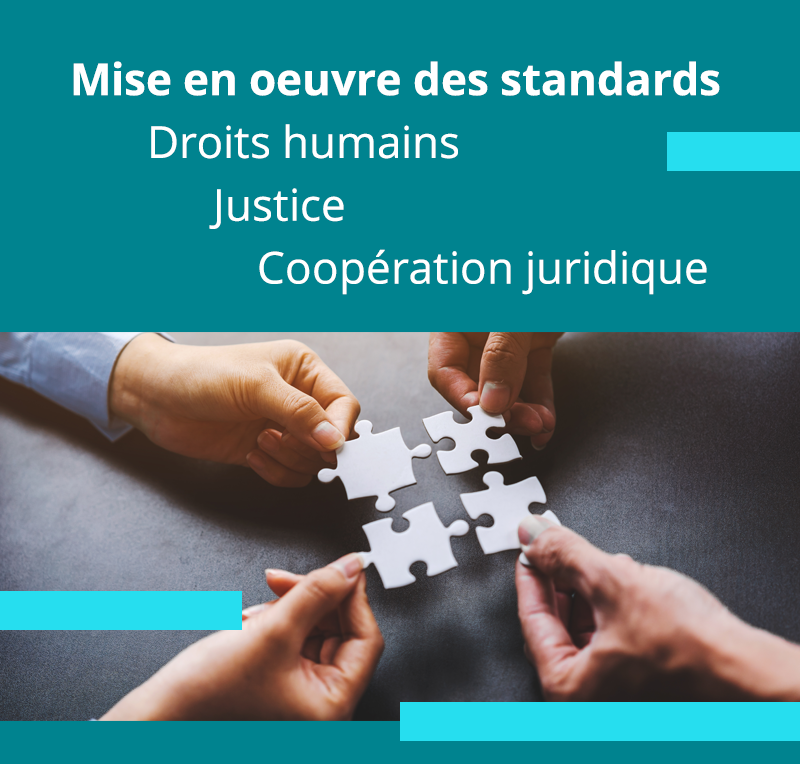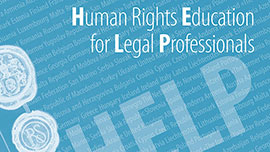Speech by Mr Mikhail Lobov
Closing remarks for the first day of the Conference
19 June 2017
Ladies and gentlemen,
I am very pleased to be able to address you at the end of the first day of this year’s HELP Conference. I know that you have had intensive and enlightening sessions throughout the day. I hope you enjoyed both the individual presentations and the group discussions.
The content of today’s sessions illustrates our idea of a Friendly Justice. It is twofold: it is about bringing justice closer to all and it is about making human rights training more user-friendly.
This is why today you heard presentations on the latest developments in the ECtHR’s case law concerning judiciary, as well as on social rights. This is also why HELP worked on developing courses which were presented to you today, to help facilitate access to certain categories of disadvantaged persons. These courses include the ones on child-friendly justice, on violence against women, on labour rights and on the fight against racism, xenophobia, homophobia and transphobia.
You could also see a presentation on the new HELP learning platform. We have recently launched this improved and user friendly version, with a new visual identity, hoping to simplify the access of the HELP users to the HELP courses. This should also make your work in presenting HELP in your countries easier and more rewarding. And finally, it works towards one of our primary aims, which is to reach out to a larger audience which increasingly uses HELP courses as self-learning resources.
You also had the possibility to discuss cross-border cooperation in human rights training. This is of particular importance to us as, based on successful pilot experiences, particularly in the Western Balkans, we plan to engage further in implementation of multi country courses, including in the European Union. Your contributions will be of great importance for us to anticipate, avoid and overcome any challenges we might encounter in this endeavour.
The last time when I had the opportunity to address some of you was on the occasion of the final European Seminar which took part in March, under the framework of the ‘HELP in the 28’ project. Back then I expressed my hope that we will be able to continue our work with EU legal professionals. Today I am very happy and proud to say that we will be supported by the EU in not just one, but two projects. And our non-EU partners will surely benefit later on from the courses we develop with the EU support.
We can now confidently say that HELP has swiftly expanded throughout the continent. I keep on saying that HELP holds a unique status in the Council of Europe as its ONLY pan-European training Programme thanks to our work in EU countries. This is a huge achievement and I congratulate you all as HELP members for this success.
The demand for more and more HELP courses to be launched in your countries constantly increases. Unfortunately, our possibilities are limited by our resources. We want to assure you that we will make all possible efforts to meet your expectations in this regard. We will also need to think strategically and provide practical ways to meet the needs in as many countries as possible with the resources that are available.
In this, we also need your support. You can support us in terms of political engagement to embed the courses in the curricula of your training institutions or Bar associations. This is exactly one of the advantages of the HELP courses: after being adapted to a national legal order, they can be reused for as many times as needed, without significant further costs.
We already had some great experiences in this regard: courses have been introduced in national curricula not only of training institutions for legal professionals, but also in universities.
HELP is there to support you, not to replace the role of national training institutions or Bar associations. In this regard, you should seek to play an active role within the HELP Network so that you can shape the landscape of future HELP actions.
Together we can contribute to the building of a European culture of human rights and ensure that everyone’s fundamental rights are safeguarded.
I would once again like to thank you for all your contributions to the discussions today. Tomorrow, you will share some sessions with your colleagues who work on human rights education in all stages of life. I believe this would result in fruitful exchanges as well. I wish you an excellent second day of the Conference.
Thank you very much for your attention.




